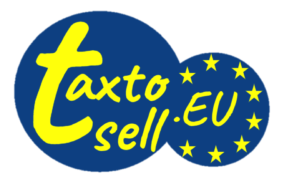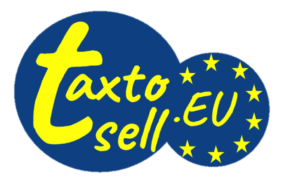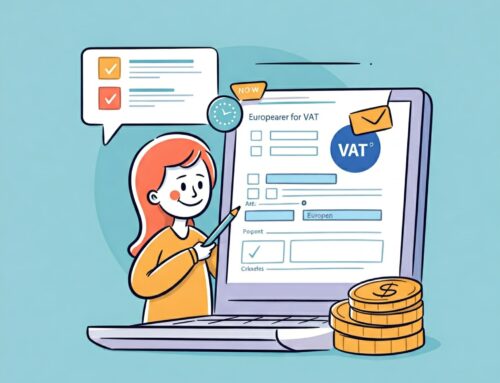This article has been written after the the substantial change in VAT regulation of July 2021.
Value added tax (VAT) is a crucial aspect of business operations in Europe. As a taxable person, it is essential to know the rates, regulations and VAT requirements to ensure compliance and avoid penalties. This article delves into the ins and outs of VAT in Europe, providing information on VAT rates, regulations and requirements, as well as on exemptions and refunds. By learning about VAT in Europe, companies can streamline their operations and optimize their financial results.
What is Value Added Tax (VAT)?
The Value Added Tax, or VAT for short, is a charge applied on the value added to the products or services at each stage of training or delivery. This implies that the tax taxes the value added to the article or service at each stage of manufacture, not the final price the consumer pays. VAT is a tax on consumption, which means that the final consumer of goods or services finally pays it. VAT is a very widespread tax system used by several countries around the world, including all the countries of the European Union (EU).
An important feature of VAT is that it is a tax on consumption and not on income or profits. This implies that the tax burden is dispersed among all consumers of goods or services, regardless of their income or wealth. The VAT rate varies according to the country and the type of goods or services sold. In some cases, some goods or services may be exempt from VAT, while in others a reduced rate may be applied. It is essential to know the type of VAT and the rules of the country in which the goods or services are sold or consumed.
In relation to VAT, it is necessary to know the rules and requirements applicable in each country. For example, companies that market goods or services in the EU must register for VAT purposes in each country where they have a taxable presence, or make a unique VAT registration and join OSS schemes. They must also meet various information and payment obligations, such as submitting VAT returns and paying VAT on time. Failure to comply with VAT rules can lead to penalties and fines, so it is essential that businesses keep abreast of the latest regulations and requirements.
VAT rates in Europe
VAT rates vary in different European countries and depend on the type of product or service. In Spain, the usual charge is 21%, while the reduced and the super-reduced rates are 10and 4% respectively. This lower rate applies to maintenance, textbooks and medicines, while the super-reduced rate applies to commodities such as bread, milk and certain fruits. Cultural activities, such as museums, cinemas and theatre, can also benefit from a reduced rate of VAT.
With a view to small businesses, some countries have a special regime. For example, in Italy those who invoice less than EUR 65,000 per year pay a rate of 5% instead of the normal 22%. This helps to lighten the tax burden and simplify its tax obligations.
In Portugal, a reduced VAT rate of 6% is applied to certain services such as restaurant services, haircut and cleaning. However, this reduced rate applies only to services provided within the country, with those provided outside Portugal subject to the standard rate of 23%.
VAT Regulation in Europe
When it comes to the Value Added Tax (VAT) in Europe, companies must know the numerous regulations of each country. VAT is a charge on the value added to a product or service at each stage of production or distribution. A key rule is the need for VAT to be discharged in each country where a company has a taxable presence. This implies that companies must keep a record of their turnover in each country and be discharged in VAT when they exceed the threshold. Ignoring this can lead to penalties and fines.
Another important regulation on VAT in Europe is the calculation and the VAT return. Companies must ensure that they apply the correct VAT rate to each product or service they offer and that they declare and pay the correct amount of VAT to the relevant tax authority. In addition, companies must keep accurate records of their VAT transactions and be able to present these documents to the tax authorities when they are asked to do so. It is also essential to bear in mind that VAT rules may differ according to the different types of transactions, such as the supply of goods, the provision of services and intra-Community acquisitions of goods.
One of the most complicated VAT rules in Europe is the treatment of cross-border supplies of goods. This refers to the movement of goods from one EU country to another. Companies should be aware of the different VAT rules for each country included in the transaction and ensure that they comply with all relevant rules. This includes ensuring that the correct VAT rate is applied, that the identification numbers are used for the correct VAT purposes and that all necessary documentation for VAT purposes is provided.
Finally, it is essential to remember that the VAT rules in Europe are subject to amendments and companies must keep up to date with any changes that may affect their operations. This may include changes in VAT rates, thresholds and reporting requirements. Companies should frequently review their VAT processes and procedures to ensure that they comply with all existing rules.
VAT requirements in Europe
Fulfilling the Value Added Tax (VAT) rules in Europe is essential for businesses operating in the region. From registration to reporting and billing, tax enforcement mandates must be understood and enforced to avoid fines and legal problems.
One of the cornerstones of VAT requirements is registration. If a company exceeds the threshold in a given country, it must obtain a VAT number and include it in all invoices and other tax-related documents. Failure to register is punishable by monetary penalties and even litigation. It is therefore essential that companies are aware of the registration requirements for each territory in which they work and comply with them.
In addition, companies must declare VAT on a regular basis. This usually involves the submission of statements to the relevant tax authorities on a quarterly or monthly basis, including details of all VAT charged and paid during the reporting period. To ensure accuracy, records of all VAT related transactions, such as invoices, receipts and credit notes, should be kept. Failure to do so or not to declare correctly can lead to sanctions and legal action. Therefore, companies should be aware of the information rules of each country in which they operate and ensure that they meet all applicable deadlines for submitting VAT returns and keeping records.
VAT exemptions in Europe
The European VAT exemptions offer companies an extension in order not to have to pay VAT on certain goods and services. These exemptions differ from one country to another within the European Union, and it is therefore essential to understand which articles and services are eligible for them. For example, some countries may exempt health services, while others may exempt educational services or cultural events. Knowing these exemptions can help businesses save money and ensure they meet the VAT rules in every nation they operate in.
In addition, it is essential to take account of the eligibility criteria for European VAT exemptions. In many cases, companies must meet specific requirements in order to qualify for these exemptions. For example, a company in the cultural sector may need to demonstrate that it meets certain criteria in order to qualify for an exemption on cultural goods and services. Understanding these eligibility criteria is paramount to ensure that businesses can benefit from VAT exemptions and avoid potential penalties for non-compliance.
Finally, it should be noted that VAT exemptions in Europe may change even within the same country. For example, in Spain, some regions may have VAT exemptions other than others. As a result, companies operating in various regions or countries should be aware of these discrepancies and ensure that they comply with the VAT rules at each location. In general, understanding VAT exemptions is an essential part of managing VAT compliance in the European Union and can help businesses save money and avoid possible sanctions.
VAT refunds in Europe
Navigating the complex and lengthy process of obtaining a VAT refund in Europe can be a challenge for businesses. To qualify for a refund, companies must be registered for VAT purposes in the country to which they are directed and provide proof of their payments, such as invoices, receipts and other documents. The rules for applying for a refund can vary from country to country, so companies must be kept informed of the applicable rules.
The timely submission of return applications is crucial, as companies normally only have a limited period of six months to one year after the end of the VAT period to submit their applications. In addition, all documents must be accurate and complete to avoid rejections or delays. Despite the difficulties, the return of VAT can be an advantageous way for companies to reduce costs and optimize their goods or services.
Keep up-to-date with the latest VAT news and requirements for online selling in EU asking our Free Online Tax Consultant.
Conclusion
In conclusion, understanding the value added tax (VAT) system in Europe is essential for businesses operating in the region. From the definition of VAT to rates, regulations and requirements, complying with the law is essential to avoid fines and penalties. In addition, knowing VAT exemptions and refunds can also help businesses to reduce costs and increase competitiveness. It is therefore crucial to keep abreast of the latest VAT changes and updates, especially when dealing with cross-border transactions, such as the delivery of goods. By doing so, businesses can ensure compliance and minimize risks while maximizing profit and growth opportunities.






